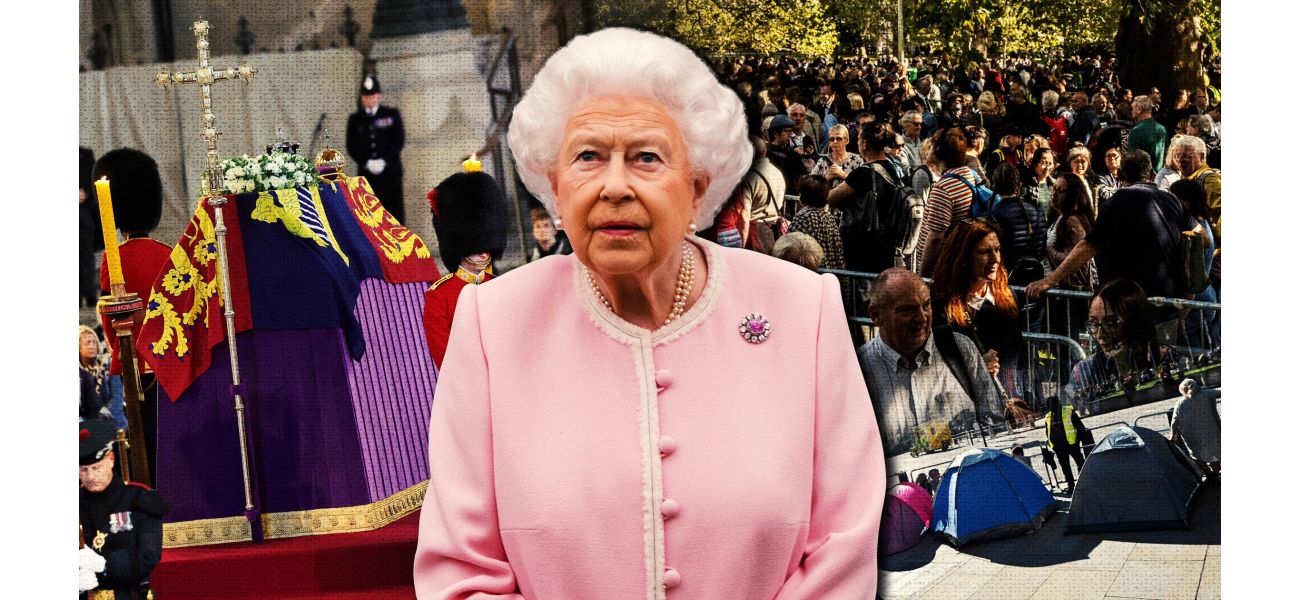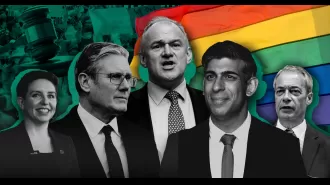Will we ever have to wait in line as long as we did for The Queue after two years?
Meeting the Queen was a gesture to recognize the strong bond that had been formed over the years.
September 15th 2024.

It's been two years since the passing of the beloved Queen Elizabeth II, and the memory of the long queue that stretched for 10 miles through the streets of London still lingers in the minds of many. People from all walks of life came together to pay their final respects to the Queen, with an estimated quarter of a million individuals joining in the solemn procession. This event once again reinforced the well-known stereotype that Brits love to queue.
Recently, a behavior specialist delved into the psychology behind queuing and shared their insights on whether or not Brits truly excel in this practice. According to Simbarashe Shamu, queuing is a cultural behavior that is learned and shared among certain groups. It reveals our willingness to follow rules and our aversion to social disapproval. Queuing, along with other behaviors such as politeness and respect for traditions, helps maintain a sense of order and cooperation within our society.
The queue to see the Queen was a sight to behold, with thousands of people patiently waiting for nearly 24 hours to get through. The line stretched all the way back to Tower Bridge and even snaked around Buckingham Palace. The online map of the queue garnered millions of views worldwide, showcasing the global interest in this unique event. People like Andrew Halas, who was pictured waiting in the queue near Westminster Hall, became almost iconic symbols of this historic moment.
As for the reasons behind the enormous queue, Mr. Shamu believes that there are two main factors at play. Firstly, people placed a great value on the act of paying their respects to the Queen, outweighing any inconvenience or delay. Secondly, the significance and uniqueness of the event itself served as a trigger for queued behavior. In other words, the event held such great importance that people were willing to show more patience and tolerance for queuing.
The need for Brits to see the Queen, despite never having met her, can be attributed to conditioned reinforcement. The Queen represents values that are deeply ingrained in our society, such as stability, tradition, and unity. Seeing her was a way for people to honor and reaffirm these important principles.
The queue to see the Queen was not an easy feat, with some well-wishers waiting for more than 9 hours. But for many, it was a small sacrifice to make in order to pay their final respects to a woman who had become a part of their lives. Before the Queen's state funeral on September 19, 2022, Westminster Hall was open 24 hours a day to allow people to say their goodbyes.
One well-wisher summed up the sentiment of many, saying, "She may be the Queen, but she is also somebody's mum, aunt, and granny. She is a part of us, and we have been lucky to have her." Firefighters and St John Ambulance volunteers were on hand to assist the thousands of people in the queue, with at least 400 needing medical attention at one point. But in the end, everyone was able to see the Queen before she was laid to rest, a testament to the determination and resilience of the British people.
Recently, a behavior specialist delved into the psychology behind queuing and shared their insights on whether or not Brits truly excel in this practice. According to Simbarashe Shamu, queuing is a cultural behavior that is learned and shared among certain groups. It reveals our willingness to follow rules and our aversion to social disapproval. Queuing, along with other behaviors such as politeness and respect for traditions, helps maintain a sense of order and cooperation within our society.
The queue to see the Queen was a sight to behold, with thousands of people patiently waiting for nearly 24 hours to get through. The line stretched all the way back to Tower Bridge and even snaked around Buckingham Palace. The online map of the queue garnered millions of views worldwide, showcasing the global interest in this unique event. People like Andrew Halas, who was pictured waiting in the queue near Westminster Hall, became almost iconic symbols of this historic moment.
As for the reasons behind the enormous queue, Mr. Shamu believes that there are two main factors at play. Firstly, people placed a great value on the act of paying their respects to the Queen, outweighing any inconvenience or delay. Secondly, the significance and uniqueness of the event itself served as a trigger for queued behavior. In other words, the event held such great importance that people were willing to show more patience and tolerance for queuing.
The need for Brits to see the Queen, despite never having met her, can be attributed to conditioned reinforcement. The Queen represents values that are deeply ingrained in our society, such as stability, tradition, and unity. Seeing her was a way for people to honor and reaffirm these important principles.
The queue to see the Queen was not an easy feat, with some well-wishers waiting for more than 9 hours. But for many, it was a small sacrifice to make in order to pay their final respects to a woman who had become a part of their lives. Before the Queen's state funeral on September 19, 2022, Westminster Hall was open 24 hours a day to allow people to say their goodbyes.
One well-wisher summed up the sentiment of many, saying, "She may be the Queen, but she is also somebody's mum, aunt, and granny. She is a part of us, and we have been lucky to have her." Firefighters and St John Ambulance volunteers were on hand to assist the thousands of people in the queue, with at least 400 needing medical attention at one point. But in the end, everyone was able to see the Queen before she was laid to rest, a testament to the determination and resilience of the British people.
[This article has been trending online recently and has been generated with AI. Your feed is customized.]
[Generative AI is experimental.]
0
0
Submit Comment





